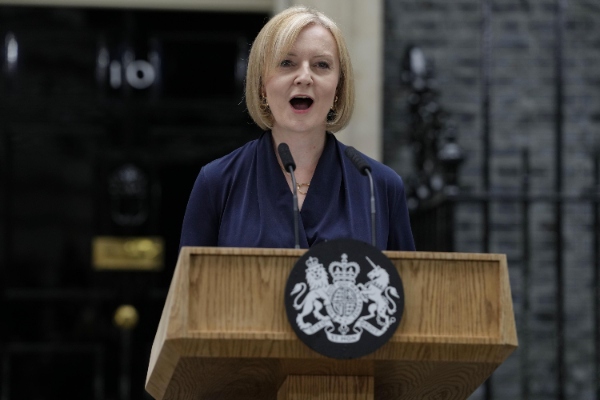Environmentalists are “enraged” by British Prime Minister Liz Truss’s efforts to enhance oil and gas output.
As Europe grapples with skyrocketing energy prices in the aftermath of Russia’s invasion of Ukraine, Truss began advocating for increased fossil fuel output and aimed to be a net energy exporter by 2040.
The new Conservative Party administration, led by Truss, also repealed a corporation tax rate increase, reduced the basic income tax rate to 19%, and began negotiations regarding special economic zones in many districts.
“We will get Britain moving by cementing our status as the best place in the world to do business,” Truss wrote in an opinion piece over the weekend. “We are putting our money where our mouth is in encouraging businesses to invest, create jobs and grow.”
On the other hand, Green groups have begun to express worries about the new economic strategy, which includes eliminating some environmental rules in investment zones.
Joan Edwards, who directs The Animal Trusts’ maritime conservation work, stated in a blog post that “cutting red tape” is nothing more than an excuse for “polluters” to harm “our rivers and countryside,” and urged for stronger wildlife safeguards in investment zones.
“As our landscape is increasingly damaged by climate change — as seen by the wildfires, drought and flooding of this summer — we cannot afford not to protect our wild spaces to our best ability,” she contended. “For the good of future generations, we must reject deregulation and enhance nature protection instead.”
Meanwhile, on social media, the Royal Society for the Protection of Birds said that the British government had “launched an attack on nature.”
“We are angry and we are mobilising against these proposed plans,” the group said. “Our most vulnerable waterways, wildlife and green spaces across England are facing one of the greatest threats in decades.”
Truss has also announced a fresh wave of North Sea oil and gas leases and overturned her country’s embargo on shale gas extraction, including the method of fracking, which involves injecting pressured liquid into subsurface rocks to extract fuels. The restriction was first imposed in 2019 in response to earthquake fears.
“We are cutting off the toxic power and pipelines from authoritarian regimes and strengthening our energy resilience,” Truss said during a speech to the United Nations General Assembly. “We will ensure we cannot be coerced or harmed by the reckless actions of rogue actors abroad. We will transition to a future based on renewable and nuclear energy while ensuring that the gas used during that transition is from reliable sources including our own North Sea production.”
Indeed, European Union member states — of which Britain is no longer a member — are dealing with energy shortages as a result of Russia’s suspension of natural gas supply through the Nord Stream 1 pipeline. Ursula von der Leyen, President of the European Commission, recently advocated for dispersing earnings from fossil fuel producers.
“In our social market economy, profits are good. But in these times, it is wrong to receive extraordinary record profits benefitting from war and on the back of consumers,” she said in her most recent state of the union address.

